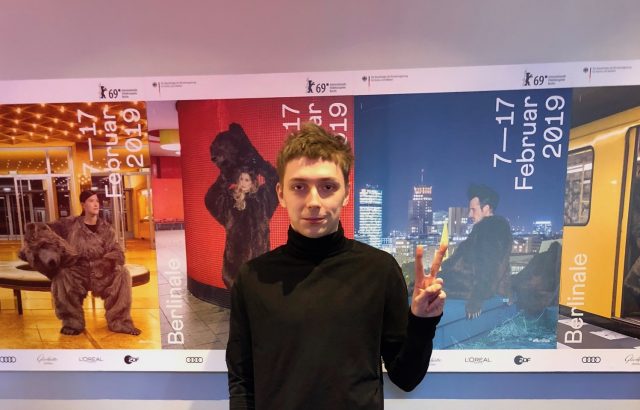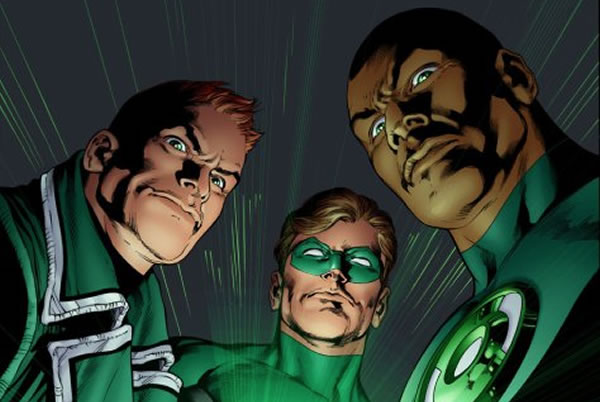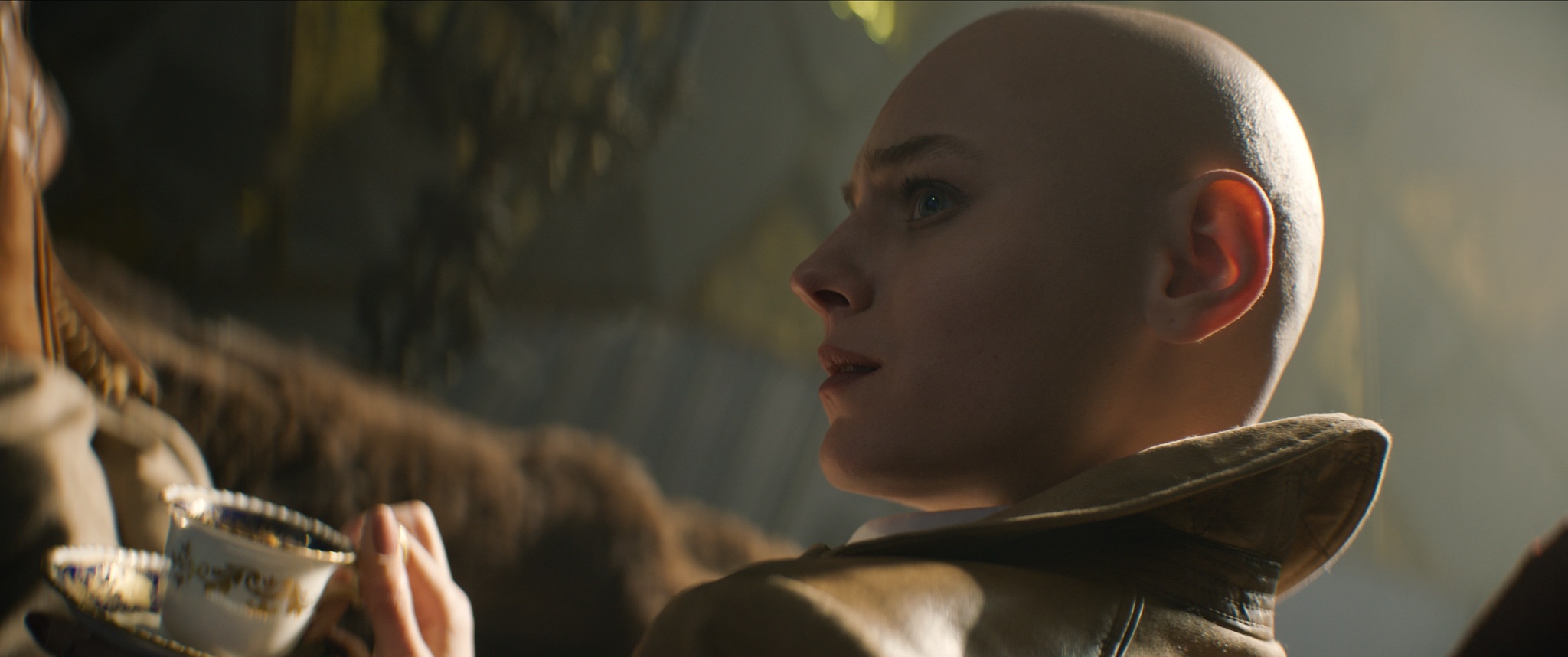Sex, drugs, and techno may sound like your usual night (and day) out in Berlin, but this nihilistic lifestyle isn’t welcomed with open arms in every country, especially in smaller towns of Russia. Theatre actor, Alexander Gorchilin makes his daring directorial debut with the provocative release of Acid, based on a group of young disillusioned teens and millennials, desperately looking for any meaning and significance in their bleak existence and sometimes sinister decisions.
We had the chance to sit down with the young director during Berlinale, to talk about this gritty, thought-provoking flick, which undoubtedly has audiences whispering about. The film’s fascination with Acid (the liquid kind) is often shock-inducing, but it seems that homosexuality and underage sex are shamed harder among the film’s native Russian population. Gorchilin, gave us a peek into all of the above, as well as his mentor Kirill Serebrennikov (currently under house arrest) and how we went about directing his first film.
LRM: The film deals with complex and hard topics like religion, drugs, fatherhood, Soviet heritage and sexuality also, homosexuality. What are some of the difficulties of working with these topics in Russia?
Alexander Gorchilin: Well, as you can see, the film has been made, so it is still possible to make such a film. But, you have to say it’s a 50/50 thing. All the topics that you mentioned now are shown in the film, but they are shown very carefully and not in a very direct manner. So you have to be very careful, very accurate as a director in Russia. And you have to pick the way you express things, if you want your film to be shown in Russia. Otherwise it would only be shown outside Russia, but still I’m a Russian director and I want my film of course to be seen by people inside the country.
LRM: What do you feel is the problem with your generation today? In the film, they mention that the problem is that they have no problems. Do you feel this is a millennial issue or the problem with your generation?
Alexander Gorchilin: Well, if this is a universal problem or not, we will find out tonight, when our film’s being screened. Well as far as Russia is concerned, I wouldn’t speak on behalf of a whole generation. A generation is always a very large mass of people with many different strata. With many different people inside, with many different ways of thinking and ways of life. This film is focused on a certain section of this generation and their complexes and problems.
And probably I’m repeating myself, the problem that this young generation, or at least this section of the young generation has, is that they don’t believe in the things that go around them. They don’t believe in the consequences in themselves. And they don’t know what to do. And maybe it’s also a criticism of the generation or generations even before them, their parents and grandparents, who have structured a kind of frame of life within which they don’t find a place for themselves.
LRM: Interesting that you dedicated the film to moms and dads.
Alexander Gorchilin: This is irony.
LRM: Talk about transitioning from an actor to a director?
Alexander Gorchilin: Well, I had some hands-on experience doing cinema in two documentaries. I was always interested in the process of cutting, of editing. But, I never had the opportunity to do a real feature film with all the actors and good camera and stuff. It came quite unexpected, this opportunity and it seemed to be a great adventure. But why not take such a great opportunity once it arises?
LRM: What was the fixation on acid and titling the film in that name?
Alexander Gorchilin: It was not my idea. It was the idea of my screenwriter. While he was writing the script, he came up with the idea, why not have acid as the central element around which all the events will be grouped? And starting from acid as a central element, we developed all kinds of aspects, starting with drugs and all the other aspects it might entail, even kind of inner state, inner state in the characters.
It all started, actually, with acid as the drug, but then we understood it has so many more aspects and so many more ways to get into the movie, and even the word acid has very unpleasant, evokes very unpleasant feelings, and can really describe a very negative internal state.
LRM: Speaking of directing, you’re a protégé of Kirill Serebrennikov.
Alexander Gorchilin: He’s my teacher.
LRM: Do you feel you have incorporated his style in your own filmmaking, and what do you admire most about his direction, which you may want to emulate?
Alexander Gorchilin: Well I wouldn’t say that as an artist I want to emulate his work when I made my own film. But then, after all, I’ve been his student for over 10 years now, and he’s been my master, so to speak. So, one way or another, rather subconsciously, his way of working had an influence on my work.
Well, honestly, there was a moment shortly before we started shooting where I went to the theater and asked Kirill out of fear, “What am I going to do? How am I going to shoot a film? I’m not a director, after all.”
And he said, “Sasha, you’re an actor, aren’t you? So, well, just pretend you’re acting as a director.”
And he said, “You are experienced working as an actor. You’ve seen me work many times. You love movies, you love cinematography, so just rely on that and don’t try to bring in something else.”
That was the only advice he gave me. After that I left him alone, I didn’t bother him anymore with questions, and I really felt much easier afterwards when he said that. I said, “Yeah, I am an actor and I’ve got people around me who want to do this project, who have their doubts, who are bringing their own enthusiasm.” So as far as, would I want to be like him? I would say rather not. I’m not trying to emulate him. He is such an intelligent, such a talented person. We are very different in terms of our personality, but of course his work has repercussions on how I go about it.
LRM: And what’s the situation currently with his home arrest? Can you communicate with him then?
Alexander Gorchilin: No, no. We can only communicate through his lawyer. And at the theater if one of his plays is going to be performed, and they’re rehearsing. It’s a production that’s unique in the history of the theater because it’s such a strange way of producing.
People come for the rehearsal. The rehearsal is video-taped. The video is put in a USB stick, his lawyer gives the video to him. He comes back with comments to the theater for the next rehearsal, and this is how a whole production is being made. It really shows he’s a great artist. He’s a hero. And once you’re a great artist, you’ll never be far away from the theater scene.
In Hamburg the Nabucco Opera will be staged, again, with him as director, being under home arrest in Russia, and doing everything [from home.]
So, he’s a real personality, and he’s still free in spite of the fact that he’s under home arrest.
LRM: I found your film so visually and thematically striking. Who are some of your influences?
Alexander Gorchilin: Well for this film, honestly speaking, I didn’t find even any reference points. But, when we as a team discuss the scripts, we, even in our internal conversations, we didn’t find a film to name as one of the references. We couldn’t find anything to hold on, to say, “Let’s do it like in that film.” The script simply didn’t give us this opportunity.
I think it was the right decision of us to say, “Okay, let’s take this story of young people, of teens and trends, and do it in a very big format.”
Also, my director of photography had to develop, or developed, a new style in the making of this project. She had already her own style, always working with a very lively, moving camera. My DOP is a girl, she’s just 22 years old, but getting more popular every day in Russia, and she had to change her style for this project, as I also changed things, the way I saw them.
LRM: What is the perception of the underage sex scene among Russians and also homosexuality. Are people open-minded about it?
Alexander Gorchilin: Well, as far as the underage sex is concerned, the girl is 15, and of course it’s sex by mutual consent, but after all, having sex with underage people is a criminal offense in Russia, and there are even cases where parents use the fact that their daughter had sex with someone to go to the police, and in spite of the fact that it was by mutual consent would still report to the police and would have somebody arrested for rape. The normal age where you can have sex by mutual consent is 16, and the girl we have in the film is 15 and her birthday will be a week later.
But even if the girl was 16 in real life, had sex with somebody she wanted to have sex with, if her parents were against it, they could report to the police, and the story would not end very well for the person who would be accused as a rapist.
Of course, the scene in the feature film is not based on real life, but it has repercussions and we deliberately framed it that way, to have repercussions, with real life, because there were some incidents, but basically it was meant to be as a love scene.
LRM: And homosexuality?
Alexander Gorchilin: Homosexuality, that’s a more difficult topic.
Well, all of the sudden, I think it was in 2010 or 2011, when gays became the enemy of the nation number one. Even openly on camera, on TV, they called for people to kill the gays and burn their house.
We have a law, it’s even [inaudible 00:25:24] in our constitution that propaganda to promote homosexuality is prohibited. But before that, nobody was concerned with the gays. It was something that people didn’t care about at all.
Before that, gays led a normal life in Russia. Of course, heterosexuals would have considered maybe being gay as somewhat strange, but the gay guys lived their life and everything was fine.
But when they started talking about so called gay propaganda on television and gay propaganda could make children gay, everybody started, all of a sudden, be absolutely concerned about the gays instead of thinking about the small pensions we have, the bad and expensive food that we have, the bad hospitals, they just got anxious about everyone around them being gay.
Even in our film, and in cinema in general, you don’t take the topic of homosexuality as a topic you tackle very openly. We don’t even say the word homosexual or gay in our film very openly. So we have to use all kinds of hints and tricks to make this topic mentioned indirectly.
The paradoxical thing is that those laws were developed and were adopted by a government, by the Duma, which is our parliament, what people are gay. They are officials, public officials, they are members of parliament were being gay, and it’s really paradoxical. And even frightening to see that those people themselves would adopt such laws.
As far as young gays are concerned, for them it’s difficult. Of course, in Moscow it’s much easier to be gay. They say that Moscow is not Russia, Moscow is a totally different country altogether, so the young generation has no problem with gays, but still there’s not only just young people living in Moscow, and you have to sort of coexist with older generations as well, and their negative feelings, and that is why it’s difficult for gays to find a partner, for instance, to talk to their relatives. Most of them would not openly be gay.
LRM: Did you feel that you had to impose some kind of self-censorship when you were doing this film?
Alexander Gorchilin: First of all, I must say, that self-censorship, unfortunately, is part and parcel of Russia’s conscience.
I try not to self-censor my projects, and that was one of the difficulties I had during shooting. I could never fully relax and try and just do the film.
Unfortunately, one might say self-censorship is a kind of disease in Russia. Nobody says it very clearly, even though people don’t say, “You should not do that and that, you must not do that,” and yet, you would think about, they might arrest you for it, they might accuse you for it, they might ban your project, so you always try to beat around the bush and not be too clear in your statements.
And this of course has something to do with our history and with our current life and with what’s happening politically in our country.
LRM: Do you think there’s any hope for your disillusioned characters.
Alexander Gorchilin: Well, I don’t have a very sinister and dark view of this generation, it’s just what stylistic means I used in this project.
So that is why the end of my film is very much open. It’s an open end so to say, maybe my heroes will be fine after all, will find about who they really are, maybe they won’t. So, it’s not really a very dark and pessimistic scenario, everyone can make a conclusion for him or herself.
Don’t forget to share this post on your Facebook and Twitter using the buttons at the top! Or you can react to the post down below!

 FOR FANBOYS, BY FANBOYS
Have you checked out LRM Online’s official podcasts and videos on The Genreverse Podcast Network? Available on YouTube and all your favorite podcast apps, This multimedia empire includes The Daily CoG, Breaking Geek Radio: The Podcast, GeekScholars Movie News, Anime-Versal Review Podcast, and our Star Wars dedicated podcast The Cantina. Check it out by listening on all your favorite podcast apps, or watching on YouTube!
Subscribe on: Apple Podcasts | Spotify | SoundCloud | Stitcher | Google Play
FOR FANBOYS, BY FANBOYS
Have you checked out LRM Online’s official podcasts and videos on The Genreverse Podcast Network? Available on YouTube and all your favorite podcast apps, This multimedia empire includes The Daily CoG, Breaking Geek Radio: The Podcast, GeekScholars Movie News, Anime-Versal Review Podcast, and our Star Wars dedicated podcast The Cantina. Check it out by listening on all your favorite podcast apps, or watching on YouTube!
Subscribe on: Apple Podcasts | Spotify | SoundCloud | Stitcher | Google Play








